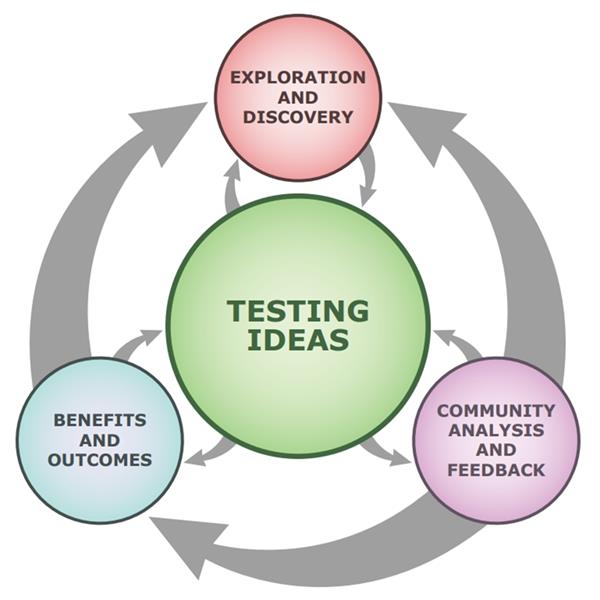Chapter 3 / How Science Works
How Science Works
Our understanding of climate change is based on scientific evidence. Respect for how science works is necessary to an understanding of the scientific evidence presented in the modules provided here.
The purpose of this module is to help you communicate to students the importance of the scientific method as a way of knowing. This module provides a way to share how the scientific process works so that when students read about scientific evidence and conclusions related to climate change, they value the scientific process and the outcomes communicated by scientific experts.
Professional Development for Educators
How Science Works
How Science Works
This resource provides a refresher on the process of science. We recommend using it to enhance science literacy which is essential for understanding climate change and other environmental sustainability issues.
Key points from the “How Science Works” section of the "Understanding Science 101" website, developed by the University of California Museum of Paleontology at Berkeley, provides a dynamic and thorough review. The website is http://undsci.berkeley.edu/article/intro_01
An oversimplified, linear process often communicated to describe the scientific methods does not represent the reality of how science works.
As shown in the diagram below, the process is nonlinear and iterative. Testing is a key part of the process and supports the other three aspects: exploration and discovery; community analysis and feedback; and benefits and outcomes.

UC Berkeley Science Flow Chart--see interactive version at http://undsci.berkeley.edu/article/scienceflowchart
Source University of California Museum of Paleontology at Berkeley website http://undsci.berkeley.edu/article/intro_01
In their work, scientists must be knowledgeable, honest, open‐minded, curious, skeptical, rational and unbiased. Conclusions must be reached through evidence—not explained through tradition, reliance on authority, revelation, belief, or other supernatural explanations.
Science: A Way of Knowing
According to Bell (2009), science is a body of knowledge, a set of methods or processes, and a way of knowing.
- Scientific knowledge is based on evidence and can change over time as new evidence is discovered.
- Creativity, objectivity, and subjectivity play important roles in science.
- Background knowledge influences how scientists view data.
Consensus in Science
An important outcome to the scientific process is consensus building.
- Scientific consensus is when the community of scientists in a particular field of study reach a collective judgment.
- Scientists come to consensus through a process that includes dissemination of research results, critical review of the disseminated work by other qualified experts, challenge/validation through re-creation of methods and processes and new research that attempts to answer the same question(s) through different methods and processes.
“Scientific Consensus - How it Forms”
This video provides an overview of how scientific consensus is reached.
More Information and Resources
How Science Works
- University of California Museum of Paleontology at Berkeley Teaching the Nature and Process of Science http://undsci.berkeley.edu/teaching/educational_research.php
- NASA Climate Science Investigations The Nature of Science: Scientific Consensus and Certainty http://www.ces.fau.edu/nasa/introduction/scientific-inquiry/how-do-scientists-collaborate-and-reach-consensus.php
